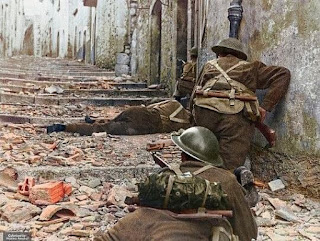Confederate Captain Theodore A. White: A Patriot's Legacy
- Get link
- X
- Other Apps
In the early 20th century, long after the cannons of the Civil War had fallen silent, Confederate Captain Theodore A. White stood as a living testament to the tumultuous and transformative period of American history. Circa 1913, Captain White, a venerable figure in his community, was often looked upon with respect and curiosity as a patriot of the War for Southern Independence.
Born in the heart of the South, Theodore A. White grew up amid the rich cultural and economic tapestry of antebellum America. As a young man, he witnessed the growing tensions between the North and the South, tensions that would ultimately lead to the secession of Southern states and the outbreak of the Civil War in 1861. Motivated by a sense of duty to his home state and the principles he believed were at stake, White joined the Confederate Army, rising to the rank of captain.
Captain White's service during the Civil War was marked by bravery and steadfast commitment. He commanded his men through some of the conflict’s most harrowing battles, displaying leadership and tactical acumen. His actions on the battlefield were driven by a deep-seated belief in the right of states to self-governance and the preservation of the Southern way of life.
In the decades following the war, Captain White returned to civilian life, where he became a prominent figure in his local community. He engaged in various efforts to rebuild and reconcile, contributing to the post-war South’s slow but steady recovery. By 1913, White had become a symbol of endurance and resilience, embodying the spirit of those who had fought for their beliefs, regardless of the conflict's outcome.
During this period, Captain White often participated in reunions and memorial events, sharing stories of the past with younger generations. These gatherings were not just about reminiscing; they were opportunities to impart lessons of courage, sacrifice, and the complexities of the nation's history. White's presence was a bridge between the old and the new South, his experiences offering invaluable insights into the era that had shaped modern America.
Photographs from around 1913 capture Captain White as a distinguished elder, often dressed in a suit with remnants of his military past subtly present in his demeanor. His eyes, though aged, still bore the intensity and conviction of his youth. He would speak at length about the principles of honor, duty, and the importance of understanding one’s heritage.
To those who knew him, Captain Theodore A. White was more than a veteran; he was a living narrative of the Civil War's enduring impact. His life spanned a transformative period in American history, and his memories served as a repository of first-hand accounts that were crucial to preserving the nuanced legacy of the Confederate soldier. Through his storytelling and community engagement, White helped ensure that the sacrifices and struggles of his generation would not be forgotten.
Captain Theodore A. White’s story is a poignant reminder of the lasting effects of the Civil War and the complex nature of American identity. His life exemplifies the journey of many Confederate veterans who navigated the difficult path from war to peace, contributing to the broader tapestry of reconciliation and national unity. As we reflect on figures like Captain White, we gain a deeper appreciation for the multifaceted history of the United States and the enduring lessons it offers.
- Get link
- X
- Other Apps


Comments
Post a Comment